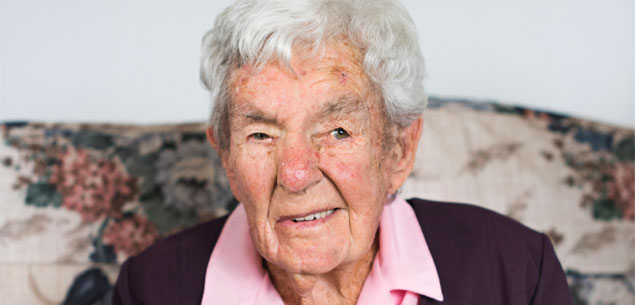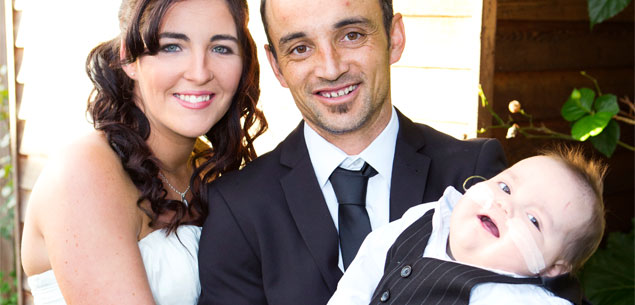On a calm autumn day in Napier, residents at Greendale Residential Care facility are gathering to wish a special lady a very happy birthday. The staff have settled for just three candles on the cake this year – if they stuck with tradition, Jean Williams would have 103 to blow out. But as they bring out the party food and dote on the birthday girl, she says she doesn’t know what all the fuss is about.
Marking a century and three years is just another day for the great-great-grandmother. And while she insists her life has been far from exciting, she’s seen two world wars, an influenza epidemic that left her sister deaf and, of course, the day Napier was anything but calm on February 3, 1931.
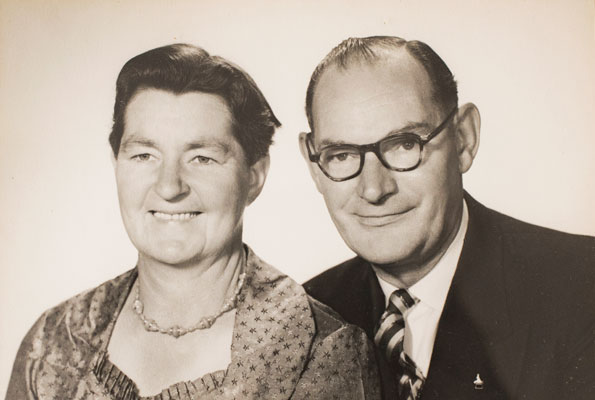
With her husband Rodney, who she married a few years after the big quake.
Jean was 18 years old when the Napier earthquake struck at 10.47am. As a shop assistant at Blythes department store on Emerson Street, she was sorting stock when the floors began to roll in the magnitude 7.8 quake. As she rushed through the haberdashery department, spools of cotton shot out from the walls. When she finally pushed open the outside doors, she was met with a disaster zone.
Within minutes of New Zealand’s deadliest earthquake, fires began to break out. What buildings weren’t destroyed by the shaking, were gutted – the town was essentially wiped off the map.
“There was mess and rubble, verandas were down, cars were buried,” Jean recalls. “We all made our way to Marine Parade, where a man on a horse told us to head for the hills because there could be a tidal wave.”
Instead, Jean headed for her Sale Street home, worried for her mother, sister and two brothers. Her father had died 12 years earlier, and Jean’s thankful no family members were among the 261 who lost their lives in Napier, Hastings or Wairoa that day. But she remembers the loss of one of her neighbours, which was particularly upsetting.
“Her husband was a police officer and she was waiting in the hospital at the maternity ward to go home. She had only just given birth, and both she and the baby died in the earthquake,” she says sadly.
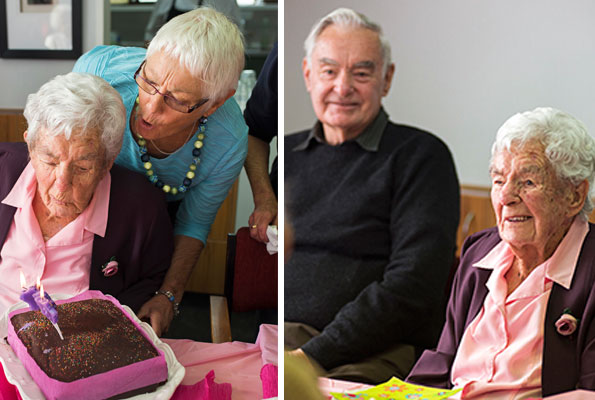
Left: Ruth helped her mum blow out her birthday candles. Right: Son Bob confesses Jean still tells him off!
Apart from a broken chimney, her family’s house remained intact. Jean’s two brothers cleaned up everything that had spilled and smashed when it fell from shelves and cupboards, burying everything in a big hole in the backyard. The family spent a few nights in a tent at a park in Napier as the aftershocks continued, then a few weeks in Palmerston North before they could return home. Jean credits the sailors of the HMS Veronica, which had recently berthed in Napier when the quake hit, for helping to get the city back on track.
Watching the people of Christchurch cope with the aftermath of the quakes in 2010 and 2011 brought many feelings flooding back. But unlike that city, Napier bounced back within two years of their disaster and was quickly rebuilt in the Art Deco-style popular at the time. Jean was happy when the old-time dances were back up and running – it was there that she’d first met a boy called Rodney, who was to become her husband a few years after the earthquake.
“He was all right,” she muses, matter-of-factly.
But for Jean, the loss of her beloved husband 43 years ago was her biggest tragedy – and the family was left shaken by another 19 years ago. Her eldest son Bill was killed in a car accident when he was 59. Jean’s other son Bob (76) and daughter Ruth (67) are delighted to be celebrating such a big milestone with their mother.
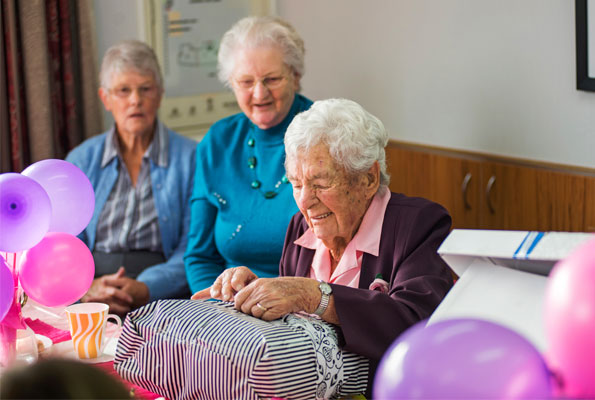
Watched on by her party guests, Jean proves that opening birthday presents never gets old.
“We’re very proud of Mum,” says Bob. “Her memory is great – you can ask her for the date of when something happened and she remembers it. She’s a strong-willed woman – I still get told off,” Bob adds with a chuckle.
Jean showed just how far her memory goes back at a commemoration for the Napier quake last year.
“I had to read the names of the people who died out to her – and she knew 98% of them,” Ruth reveals. ”She could tell you what job they did and where they were at the time of the quake.”
The staff at Greendale put her longevity down to the fact she’s kept her mind sharp by reading every night and playing Bingo and Scrabble. Plus, she still has the desire to give anything a go. But reflecting on how she’s survived more than a century, Jean simply says living a quiet life has been the key. “I guess it’s what you make of it – I’ve done nothing exciting, really.”
Words by: Anastasia Hedge
